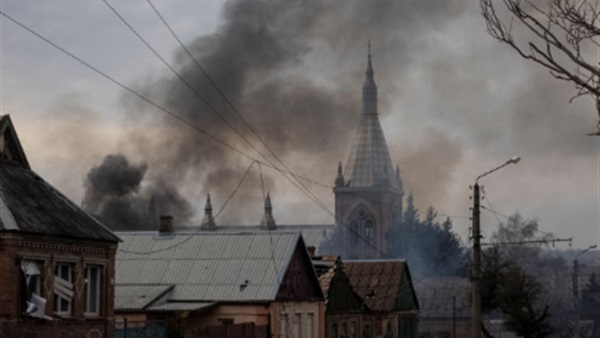Russia Launches New Drone Attacks as Partnership With Iran Deepens

Russia launched fresh attacks with Iranian-made drones early Saturday over Ukraine, where the country’s southern command said it shot down 10 of the unmanned aerial systems, an indication that Moscow has replenished its supply of the drones as the two countries move toward what the U.S. has called a full defense partnership.
Ukraine’s southern command said it shot down four Shahed-136 drones in the Kherson region, four more in the Mykolaiv region and two in the Odessa region.
Maksym Marchenko, the governor of Odessa, said the drones had attacked energy infrastructure and civilian housing overnight.
“There is no electricity in nearly any of our region’s districts and communities of our region. Energy workers are already working on restoring the damaged infrastructure,” he said.
Russia purchased hundreds of Iranian Shahed and Mohajer series drones over the summer, which Moscow has used to attack Ukraine’s front-line positions and civilian infrastructure. Ukrainian air defenses, however, adapted quickly, shooting the entire batch down over a series of months.
The reappearance of the UAVs on the battlefield this week shows that Russia has resupplied its stocks as the West sees greater defense cooperation between Moscow and Tehran.
The Biden administration warned Friday that military ties between Russia and Iran were expanding into “a full-fledged defense partnership” and said the two nations were considering establishing a joint production line to provide lethal drones in Russia.
The U.S. said it believed Iran was considering selling hundreds of ballistic missiles to Russia, and described the military relationship between the two nations as moving beyond simply Iran supplying drones to Russia for use in the war in Ukraine.
The U.K.’s Defense Ministry warned Saturday that the missiles would be used to buttress Russia’s dwindling supply following months of sustained large-scale attacks on Ukraine’s power infrastructure, meant to freeze Ukrainians ahead as winter temperatures dip. Russia has highly likely expended a large proportion of its stock of its own SS-26 Iskander short-range ballistic missiles, which carry a 500 kilogram warhead up to 300 miles, the ministry said.
“If Russia succeeds in bringing a large number of Iranian ballistic missiles into service, it will likely use them to continue and expand its campaign of strikes against Ukraine’s critical national infrastructure,” the ministry said on Twitter.
The worst of the strikes cut water supply in major cities and knocked out half of Ukraine’s power grid, forcing rolling blackouts across the country.
This week, Russian President Vladimir Putin admitted to targeting Ukraine’s power infrastructure, despite previously repeatedly asserting that Russia’s forces don’t hit civilian targets. He pledged to continue the campaign.
“There’s a lot of noise about our strikes on the energy infrastructure of a neighboring country,” Mr. Putin said. “Yes, we do that.”
Criticism of the attacks would “not interfere with our combat missions,” he said.
Russia’s deployment of drones in Ukraine’s south came as its forces are working to make incremental gains in the country’s eastern Donbas region, with much of the fighting concentrated around the city of Bakhmut. Russia has been forced to make gains on foot as much of its artillery ammunition is running low.
Russian troops have also boosted fighting around the Donbas city of Lyman, which Ukrainian forces took earlier this fall, causing large portions of the Russian front line to crumble.
The “Russian enemy suffered the greatest losses of the past day near Bakhmut and Lyman,” Ukraine’s general staff said.
Russian Defense Ministry spokesman, Lt. Gen. Igor Konashenkov, said Saturday that Russian troops had continued offensive operations in the direction of Lyman and had as a result occupied “more advantageous positions.”
Late Friday, Ukrainian President Volodymyr Zelensky held a meeting with officials from the Vatican City, following Pope Francis ‘s increasingly harsh condemnation of the war. The pope has compared the suffering of Ukrainians with 20th century genocides.





